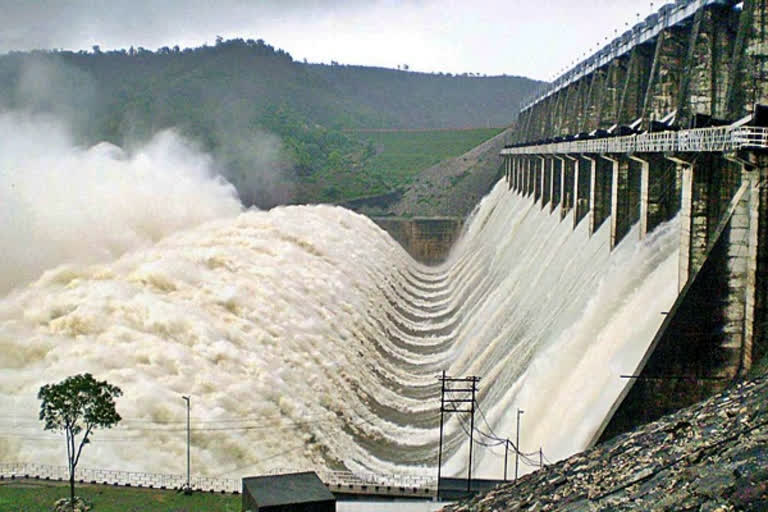Hyderabad: The current tussle with Nepal over that country's territorial claims and cartographic aggression in recent times has further delayed the construction of a mega 5600 MW dam on the Mahakali river which flows between Nepal and the Indian state of Uttarakhand. This river also defines the border between the two countries. The mega-dam was to be built jointly by two countries under an MOU signed in February 1996. During a visit to Kathmandu in 2014 after taking over the reins of power, Prime Minister Modi had expressed his desire to expedite the construction of this dam. An MOU was also signed between the two countries to this effect. The project was roughly estimated to cost over 35 thousand crores and is scheduled to be completed by 2026.
But now this project seems to have run into rough weather given the present Nepalese government's stance against India. The Nepalese Prime Minister KP Sharma Oli, who is a leader of the Maoist Communist Party of Nepal has taken a stand against India under the influence of China. The Chinese President Xi Jin Ping had visited Nepal in October last year to a grand welcome. The Chinese President also signed several treaties for providing logistic and financial support to Nepal.
Also read: Pakistan invites Indian Sikhs to mark founder's anniversary
This project popularly known as the Pancheshwar dam is stated to be one of the tallest dams in the world. River Mahakali descends from 11800 feet at Kalapani to 660feet as it enters the Terai plains offering an unutilized potential of hydropower. With a proposed height of 315 meters, this dam will be the second largest dam in the world with a power generating capacity of 5600MW. Officials of both India and Nepal have all along been deliberating on the possibility of building this dam since 1956 when the then Central Water Commission had evinced interest in exploiting the power generation potential of this river and also providing irrigation to both the countries
The proposed major sub- Himalayan Hydropower project would have provided not only electricity and water for irrigation to major parts of India and Nepal but also would have helped in controlling floods in Bihar and some parts of Uttar Pradesh. The construction of this dam is already delayed by several years raising the cost of construction to billions of dollars.
It is worthwhile to mention here that the construction of this dam has also been hotly debated in some quarters in India. Some critics say that this dam would displace some 30000 families in 123 villages in the three districts of Uttarakhand i.e., Pithoragarh, Almora, and Champawat. Not only this, they point out that some 9100 hectares of dense forests would be submerged under the 11600 hectares of the reservoir area. They talk about the tremendous loss to the region's ecosystem and its unique wildlife. Thus a stiff opposition to this dam by affected people and environmentalists continues.
Also read: Floods and landslides kill 90 people in Vietnam
Coming from Nepal and passing through Uttarakhand, the river enters Uttar Pradesh flowing south-east across the plains to join the Ghaghra River, a tributary of Ganga. Even the public hearings on this issue during the past few months have not helped assuage the feelings of the agitated concerned people. Now a regional political party of the state, Uttarakhand Kranti Dal and Nepalese Communist Party along with the National Green Tribunal have also begun opposing the dam openly.
As of now, the affected people seem to be adamant, despite assurances by the government on their proper rehabilitation and adequate compensation to be given to them. Thus, the controversy over the construction of the mega-dam assuming a new dimension. Now the regional political party Uttarakhand Kranti Dal, Nepalese Communist Party along with National Green Tribunal have also expressed their reservations on the construction of this dam.



